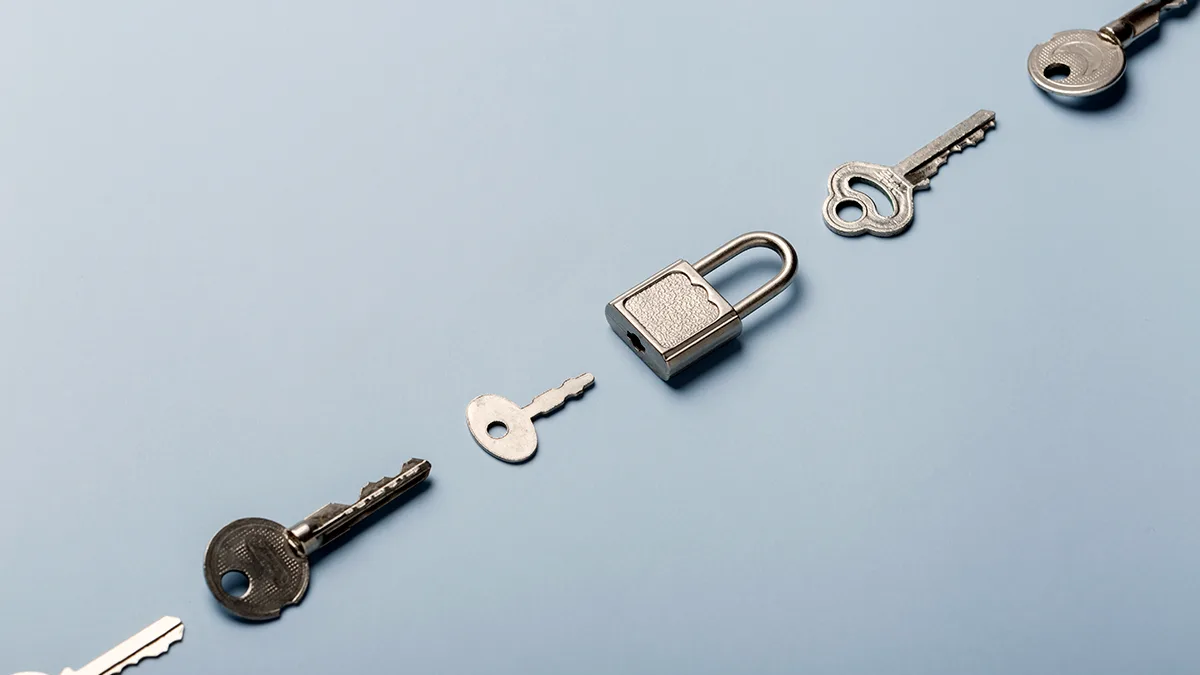The Hidden Costs of DIY Lock Repairs and How to Avoid Them. In a bustling city…
What Happens During a Lock Rekeying Service?
What Happens During a Lock Rekeying Service? In today’s fast-paced world, securing our homes and businesses is more crucial than ever.
With the increasing number of locksmith services available, understanding the various options for enhancing your security can be quite overwhelming.
One such service that has gained popularity is the lock rekeying service.
This article aims to provide a comprehensive understanding of what happens during a lock rekeying service, particularly in London, and why it may be the ideal solution for your security needs in 2025.
Understanding Lock Rekeying
Lock rekeying is a process that involves changing the internal components of a lock so that it can be operated by a new key.
This service is often sought when a key is lost, stolen, or when a property changes ownership.
Rather than replacing the entire lock, which can be costly and time-consuming, rekeying offers a more efficient and economical solution.
Why Choose Lock Rekeying?
- Cost-Effectiveness:
- Replacing a lock can be expensive, especially if you have multiple locks in your property.
- A lock rekeying service is typically more affordable, as it requires fewer materials and labour.
- Quick Turnaround:
- A professional locksmith can usually complete a rekeying service in a matter of minutes, making it a swift solution for urgent security concerns.
- Improved Security:
- If you have recently moved into a new home or office, or if you’ve lost your keys, rekeying ensures that previous keys will no longer work, providing peace of mind.
- Flexibility:
- If you have multiple locks that need to be rekeyed, a locksmith can easily set them to operate with the same key, simplifying your key management.
The Lock Rekeying Process
When you engage a locksmith for a rekeying service in London, you can expect a systematic approach to ensure the job is done correctly and efficiently.
Here’s a breakdown of the typical steps involved in the process:
1. Assessment of the Lock
Upon arrival, the locksmith will first assess the lock that needs to be rekeyed.
This involves checking its condition, determining the type of lock, and ensuring that it is suitable for rekeying.
Some locks, particularly older or damaged ones, may not be rekeyable and might require a replacement instead.
2. Removal of the Lock Cylinder
Once the lock has been assessed, the locksmith will proceed to remove the lock cylinder from the door.
This is the part of the lock that contains the pins and tumblers.
The removal process may vary depending on the type of lock, but it generally involves unscrewing the lock and carefully extracting the cylinder.
3. Disassembly of the Lock Cylinder
After the cylinder is removed, the locksmith will disassemble it to access the internal components.
This step is crucial as it allows for the replacement of the pins that correspond to the new key.
The locksmith will typically have a range of pins on hand to ensure compatibility with the new key.
4. Replacement of Pins
The locksmith will then replace the existing pins with new ones that match the cuts of the new key.
This step is vital, as the pins must align correctly to ensure that the new key will operate the lock smoothly.
The locksmith will carefully select the appropriate pins based on the specifications of the new key.
5. Reassembly of the Lock Cylinder
Once the pins have been replaced, the locksmith will reassemble the lock cylinder.
This involves putting the cylinder back together and ensuring that all components are functioning correctly.
The locksmith will test the mechanism to ensure that it operates smoothly with the new key.
6. Reinstallation of the Lock
After reassembly, the locksmith will reinstall the lock back into the door.
This step includes securing the lock in its original position and ensuring that it is properly aligned.
The locksmith will also check the overall functionality of the lock to confirm that it is working as intended.
7. Testing the New Key
Finally, the locksmith will test the new key to ensure it operates the lock without any issues.
This is a critical step, as it verifies that the rekeying process was successful and that the old keys will no longer work.
Benefits of Hiring a Professional Locksmith
While some individuals may consider attempting a DIY rekeying process, hiring a professional locksmith in London offers several advantages:
- Expertise:
- Professional locksmiths have the training and experience to handle various types of locks and security systems.
- They can quickly identify the best approach for your specific needs.
- Tools and Equipment:
- Locksmiths come equipped with the necessary tools and equipment to perform rekeying efficiently and effectively.
- This ensures that the job is done correctly without causing damage to the lock.
- Warranty and Support:
- Many locksmiths offer warranties on their services, providing you with added peace of mind.
- If any issues arise after the service, you can rely on the locksmith for support.
- Security Consultation:
- A professional locksmith can also provide valuable advice on enhancing your overall security.
- They can recommend additional measures or upgrades to help protect your property further.
Common Situations for Lock Rekeying
Understanding when to consider a lock rekeying service can help you maintain your security.
Here are some common situations where rekeying may be necessary:
- Moving into a New Property:
- If you’ve recently purchased or rented a home or office, it’s wise to rekey the locks.
- This ensures that previous occupants or anyone with a copy of the key can no longer access the property.
- Lost or Stolen Keys:
- If you’ve lost your keys or had them stolen, rekeying is essential to prevent unauthorised access.
- This is especially important for businesses that may have sensitive information or valuable assets.
- Divorce or Separation:
- In the event of a divorce or separation, rekeying can provide a sense of security.
- It ensures that an ex-partner cannot access the property without permission.
- Employee Turnover:
- For businesses, when an employee leaves, it’s prudent to rekey the locks they had access to.
- This helps protect sensitive information and assets from potential misuse.
- Upgrading Security:
- If you feel that your current locks are outdated or insufficient, rekeying can be part of a broader security upgrade.
- A locksmith can recommend modern locking systems that enhance your security.
In conclusion, a lock rekeying service is a practical and efficient solution for enhancing your security, particularly in a bustling city like London.
With the potential for lost keys, changing ownership, or simply wanting to upgrade security, understanding the rekeying process can empower you to make informed decisions about your safety.
As we look towards 2025, the importance of security will only continue to grow.
Engaging a professional locksmith not only ensures that your locks are rekeyed correctly but also provides you with valuable insights into improving your overall security strategy.
Whether you are a homeowner, a business owner, or someone simply looking to enhance their personal safety, lock rekeying should be at the forefront of your security considerations.
By choosing a reputable locksmith service, you can rest assured that your property will remain secure, allowing you to focus on what truly matters in your life.




Comments (0)